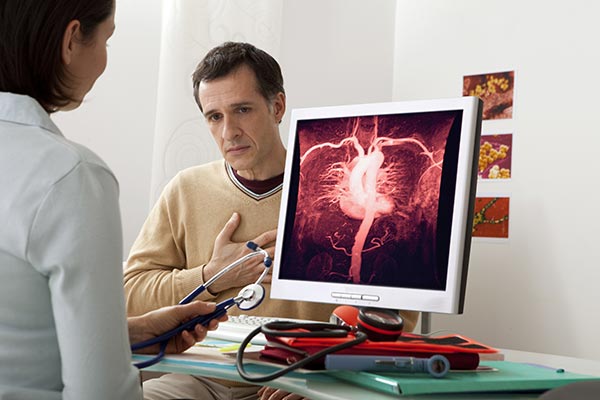Understanding end-stage COPD: Coping strategies for patients and their loved ones
03/30/2020 / By Divina Ramirez

Chronic obstructive pulmonary disease (COPD) refers to a cluster of potentially fatal respiratory conditions. It is marked by breathlessness, inflammation, airway obstruction and significant bronchial damage.
Many of the chronic respiratory diseases classified under COPD, such as emphysema and chronic bronchitis, are primarily caused by exposure to cigarette smoke. However, COPD can also be exacerbated by air pollution and underlying cardiovascular conditions.
Common signs and symptoms of COPD include:
- Shortness of breath
- Wheezing
- Chest pain or discomfort
- Chronic cough
- Fatigue
- Excess mucus
Experts determine the severity of COPD based on the presence of symptoms. The stages of COPD are as follows:
- Stage 1 (Mild COPD) – An individual may experience mild symptoms that resemble those of the common cold including a sore throat and excess mucus. COPD is difficult to detect in this stage.
- Stage 2 (Moderate COPD) – An individual may experience shortness of breath, chronic cough and discomfort in the chest area.
- Stage 3 (Severe COPD) – An individual may struggle to do mildly strenuous physical activities. They may also experience chest pain and fatigue.
- Stage 4 (End-stage COPD) – This is the final stage of COPD. It is marked by significantly impaired lung functions. The damage caused by COPD at this stage is irreversible and can potentially be life-threatening. An individual may struggle to do simple physical activities, such as walking and going up the stairs.
Unfortunately, there is currently no known cure for COPD. Moreover, individuals with COPD also face an increased risk of cardiovascular disease and lung cancer. (Related: Raspberries: A potential treatment for COPD?)
Coping with COPD
Although home remedies may help relieve symptoms of the disease, they may no longer be potent during end-stage COPD. Still, an individual may cope via palliative or supportive means, such as:
Staying active – COPD can cause moderate to severe anxiety, so an individual with end-stage COPD ought to take care of their emotional health, as well as that of their loved ones, to avoid exacerbating negative emotions. Some of the activities an individual can do to stay active include:
- Getting dressed every day
- Exercising
- Taking up a new hobby
- Interacting with friends and family
- Doing household chores
- Getting enough sleep
- Following a daily routine
Doing yoga – Yoga can greatly benefit individuals with COPD because it incorporates breathing techniques and meditation. Yoga can improve overall emotional and physical health, as well as strengthen respiratory muscles. Benefits of doing yoga include lowered blood pressure, increased relaxation and self-confidence, reduced stress and anxiety and improved fitness.
Joining support groups – If anxiety, fear or restlessness persists, an individual may try joining a support group for assistance. A support group brings together individuals who are going through similar experiences, such as addiction, chronic medical conditions, bereavement or depression. A support group provides an opportunity for individuals to share thoughts, ideas, perspectives and experiences. A support group may also fill a gap between medical treatment and the need for emotional support. Often, support groups foster solidarity, hope and optimism, which individuals may struggle with.
Walking – Walking is a safe and low-impact exercise that can help an individual with end-stage COPD build exercise tolerance. Walking can also burn fat, relieve stress and strengthen respiratory muscles.
Meditating – Negative emotions associated with end-stage COPD, such as anxiety, stress and fear, can make it difficult for an individual and their loved ones to cope. Luckily, mindfulness exercises can regulate mood and reduce anxiety, depression and fatigue. Daily meditations can also improve the quality of sleep.
End-stage COPD can be overwhelming, but it does not have to be. An individual struggling with this disease can make positive lifestyle changes to relieve symptoms and improve their overall health. Emotional support from friends and family can also help individuals overcome the disease.
Sources include:
Tagged Under: anxiety relief, cardiovascular health, chronic bronchitis, chronic obstructive pulmonary disease, disease treatments, emphysema, exercise, lung cancer, mental health, pain relief, stress relief, Yoga
RECENT NEWS & ARTICLES
COPYRIGHT © 2017 HEART NEWS



















